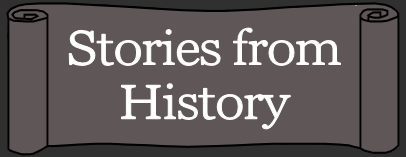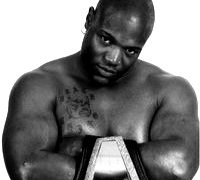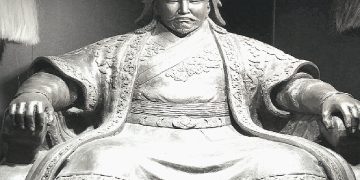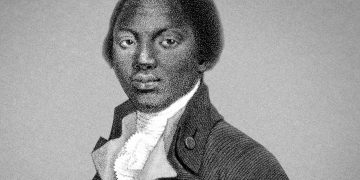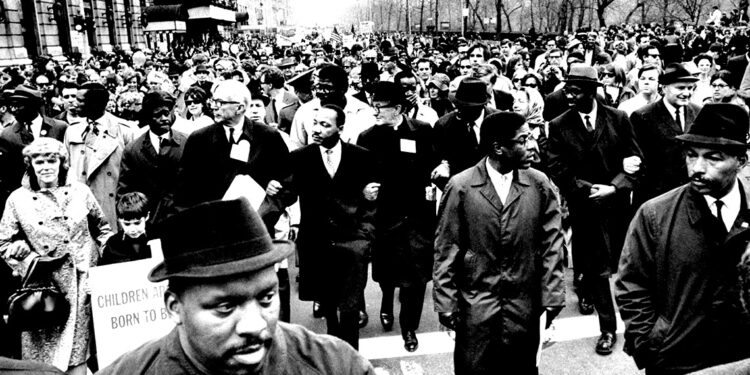The Civil Rights Movement in America was a pivotal and transformative period in the nation’s history. Spanning from the 1950s to the 1960s, it aimed to end racial segregation and discrimination against African Americans, ultimately leading to significant changes in legislation and societal attitudes.
The movement emerged in response to the deeply entrenched racism and inequality that plagued the United States. African Americans faced systemic oppression and were denied basic rights and opportunities solely based on the color of their skin. They were subjected to segregation in schools, public facilities, and even public transportation, enforced through Jim Crow laws.
The catalyst for the Civil Rights Movement can be traced back to the landmark Supreme Court case, Brown v. Board of Education, in 1954. The court ruled that racial segregation in public schools was unconstitutional, overturning the “separate but equal” doctrine established in Plessy v. Ferguson. This decision set the stage for activists and leaders to challenge racial injustice and fight for equal rights.
One of the most prominent figures in the movement was Dr. Martin Luther King Jr. His philosophy of nonviolent resistance and his powerful speeches, such as the iconic “I Have a Dream” speech, inspired millions of people to join the struggle for equality. King advocated for peaceful protests, civil disobedience, and the use of moral persuasion to bring about change.
The Civil Rights Movement witnessed several pivotal events that galvanized public support and brought attention to the cause. The Montgomery Bus Boycott in 1955, sparked by Rosa Parks’ refusal to give up her seat to a white passenger, showcased the power of nonviolent resistance and led to the desegregation of public transportation.
The sit-ins, often led by college students, were another important tactic employed during the movement. African American activists would peacefully occupy segregated establishments, such as lunch counters, demanding equal treatment. These acts of civil disobedience drew national attention to the injustice of segregation and contributed to the eventual dismantling of Jim Crow laws.
The Civil Rights Act of 1964, signed into law by President Lyndon B. Johnson, outlawed discrimination based on race, color, religion, sex, or national origin. It prohibited segregation in public places and employment discrimination, marking a significant victory for the Civil Rights Movement.
The Voting Rights Act of 1965 was another milestone achievement. It aimed to overcome the barriers that prevented African Americans from exercising their right to vote, such as literacy tests and poll taxes. The act resulted in a significant increase in African American voter registration and participation in the democratic process. You may also like
The impact of the Civil Rights Movement was profound and far-reaching. It paved the way for a more inclusive and equal society, challenging the deeply ingrained prejudices and discriminatory practices that had long defined American society. The movement not only transformed laws and policies but also sparked a broader cultural shift, inspiring future social justice movements.
However, the fight for racial equality is an ongoing struggle. While significant progress has been made, systemic racism and inequality persist in various forms. The legacy of the Civil Rights Movement reminds us of the power of collective action and the importance of continuing the work towards a truly just and equal society.
Here are some additional details about the Civil Rights Movement in America:
1. Origins and Influences: The Civil Rights Movement drew inspiration from various sources, including the teachings of Mahatma Gandhi and his nonviolent resistance movement in India. The efforts of African American leaders and organizations, such as the National Association for the Advancement of Colored People (NAACP) and the Southern Christian Leadership Conference (SCLC), played a crucial role in mobilizing communities and advocating for change.
2. Freedom Rides: In 1961, groups of African American and white activists embarked on “Freedom Rides” to challenge segregation in interstate bus travel. They faced violent opposition from white supremacists, but their determination to desegregate public transportation led to a ruling by the Interstate Commerce Commission that outlawed segregation in bus and train stations.
3. Birmingham Campaign: The Birmingham Campaign of 1963 was a series of nonviolent protests and demonstrations organized by the SCLC. Led by Dr. Martin Luther King Jr., the campaign aimed to bring attention to the brutal treatment of African Americans and the need for desegregation in Birmingham, Alabama. The use of police dogs and fire hoses against peaceful protesters drew national outrage and ultimately led to the desegregation of public facilities in the city.
4. March on Washington: One of the most iconic events of the Civil Rights Movement was the March on Washington for Jobs and Freedom on August 28, 1963. It brought together an estimated 250,000 people, demanding civil and economic rights for African Americans. The highlight of the march was Dr. King’s famous “I Have a Dream” speech delivered at the Lincoln Memorial, which called for an end to racism and inequality.
5. Black Power Movement: Towards the late 1960s, the Civil Rights Movement underwent a shift with the emergence of the Black Power Movement. Led by organizations like the Black Panther Party, this movement emphasized self-determination, racial pride, and community empowerment. It sought to address broader issues affecting African American communities, including economic disparities and police brutality. join our tech community and be part or the digital revolution!
6. Assassinations: Tragically, the Civil Rights Movement saw the assassinations of prominent leaders who were instrumental in advocating for change. In 1963, President John F. Kennedy was assassinated, followed by the killings of civil rights activist Medgar Evers in 1963, Malcolm X in 1965, and Dr. Martin Luther King Jr. in 1968. These tragic events further galvanized support for the movement and highlighted the dangers faced by those fighting for civil rights.
7. Influence on Other Movements: The Civil Rights Movement had a profound influence on other social justice movements. It inspired women’s rights activists, the LGBTQ+ movement, and the disability rights movement, among others. The strategies, tactics, and principles of nonviolent resistance employed during the movement continue to serve as a blueprint for peaceful protest and advocacy today.
The Civil Rights Movement in America was a complex and multifaceted struggle that demanded courage, resilience, and unwavering commitment. Its impact on American society cannot be overstated, as it fundamentally transformed the legal and social landscape of the country. The movement serves as a reminder of the ongoing fight for equality and the power of collective action in shaping a more just and inclusive society.
The Civil Rights Movement in America was a pivotal chapter in the nation’s history, marked by the tireless efforts of courageous activists who fought for equality and justice. Their determination and sacrifice brought about significant legislative changes and a shift in societal attitudes, leaving a lasting impact on the pursuit of civil rights for all. Join our fitness community and achieve your goals!
